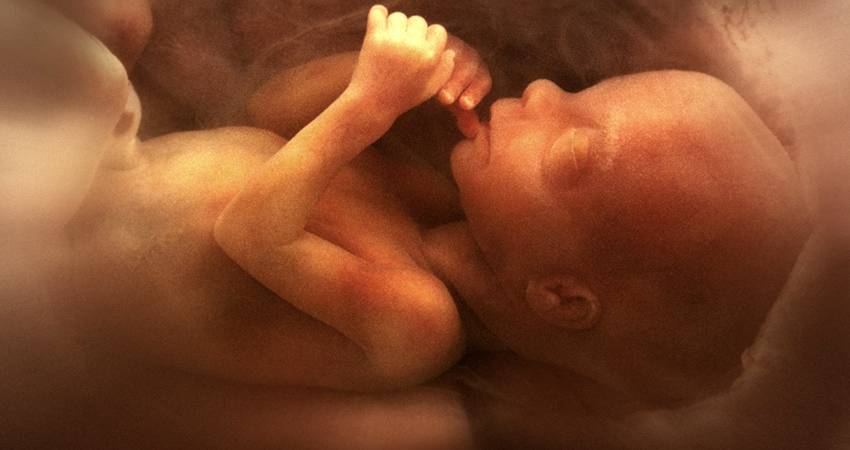
Are Private, for-profit abortion clinics already here?
It will be recalled that throughout the referendum campaign to remove the Eighth Amendment, and indeed well before that point during the Oireachtas Committee hearings, it was continually stressed that the provision of abortion services would be GP led.
It was a point made again and again by the Minister for Health, Simon Harris, as part of his efforts to provide assurances to the Irish public that abortion would only be carried out in the ‘safest’ of circumstances.
In fact, in March of 2018, The Royal College of Obstetricians and Gynaecologists released a statement saying they were ready to train Irish doctors to provide abortion services, should the referendum be passed.
The draft legislation published also published in March 2018 used the term 'medical practitioner:’ defined as "all registered medical practitioners on the Medical Council register".
It is clear then that as far as the messaging from the Minister and his supporters was concerned, abortions would happen either in GP surgeries or hospitals, if the baby was more than 12 weeks gestation.
Concerns that private, or for-profit organisations would eventually enter the ‘abortion market’ here were brushed aside as scaremongering
In 2018, a spokesperson from Marie Stopes, the UK’s largest abortion provider, said they had no plans to provide ‘services’ in the Republic of Ireland.
However, questions have now arisen as to whether, private or for-profit abortion providers are actually operating within the state.
The information on which this is based is to be found in a reply given by the Minister for Health, to the leader of Fianna Fail, Deputy Micheál Martin (Let’s just park for a moment all our reservations about the Fianna Fail leader.)
Specifically, Deputy Martin asked Minister Harris in July “if he is satisfied that terminations are not being carried out in private clinics; and if he will make a statement on the matter.”
Minister Harris responded with the following:
“Sections 26 to 28 of the Act provide universal access to termination of pregnancy services for people who are ordinarily resident in the State (i.e., services are provided free of charge). However, women - from both within and outside the State - may also access the service on a private basis should they so choose, although they will have to pay a fee to do so. There is no requirement for a termination of pregnancy to be carried out in a particular location.”
Minister Harris’ reply is at one and same time factual, revealing and extremely evasive.
The latter is clear for two reasons. The first is the obvious thrust of the PQ, in that the Fianna Fail leader was seeking to be satisfied on a very specific matter: i.e, whether or not private clinics are operating here (a little late for that Micheál.)
The second reason it is evasive is because Micheál Martin already knows that women can access abortion privately, that is, directly pay the fee themselves. Minister Harris knows that he knows this. They brought the legislation through hand in glove.
What is revealing about the reply is that nowhere does the Minister confront the actual substance or meaning of the question. This is deeply concerning.
The reply also highlights an element of the current abortion regime that played no part in the debate or discussion prior to or after the referendum.
If Minister Harris had said to the people during 2018 , 'there will be no requirement for a termination of pregnancy to be carried out in a particular location,' surely it would have prompted a few uncomfortable questions for him.
It certainly would have undermined the whole ‘GP led service’ narrative that he was desperate to convey to the public.
What is clear is that Minister Harris must disclose whether or not private, for-profit abortion clinics are operating within the state.
As things stand the first review of the abortion Act is not due until 2020. That is far too long to wait before we have the answer to this question.
Featured
- Every Life Counts: sending love and care for sick babies
- "A step backwards": Jersey has legalised Assisted Suicide
- 8,000 babies saved by Abortion Pill Reversal
- Spain Moves To Restrict Pro-Life Protests Near Abortion Clinics
- Mediums and abortion: a dangerous narrative
- Man jailed for 9 years for forced abortion
- Abortion coercion has arrived in Ireland – the NWC are silent
- Review of at-home abortions 'needed after coercion case'
- French Govt to remind 29-year-olds of biological clock
- Huge factor in decline in primary school numbers ignored
- Germany Denies Promoting Abortion Abroad—While Funding Pro-Abortion NGOs
- Govt don’t oppose Coppinger abortion bill at 1st stage
- March for Life: Vance, the White House, and a Divided Pro-Life Movement
- Paris’ Annual March for Life Puts Euthanasia in the Spotlight
- Britain’s seemingly limitless abortion rate
- The importance of the work carried out by Every Life Counts
- Puerto Rico officially recognizes unborn children as ‘natural persons’
- Rally for Life 2025



























